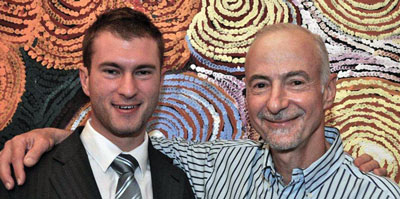Dr Hilton Immerman and Dr Josef McDonald (“Macca”) speak of their association as mentor and Indigenous medical student
- Hilton Immerman1
- Shalom College, University of New South Wales, Sydney, NSW.
Correspondence:
Online responses are no longer available. Please refer to our instructions for authors page for more information.





